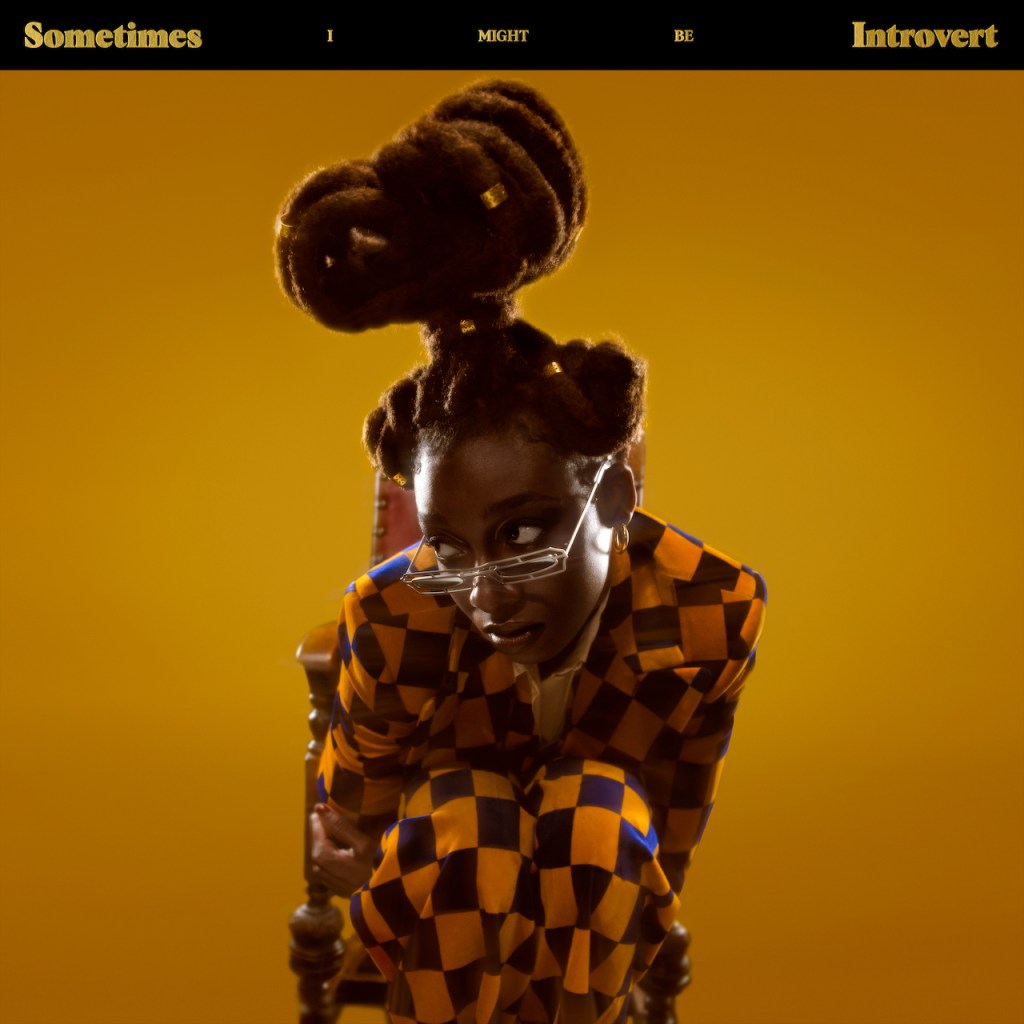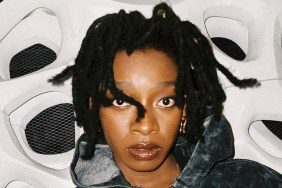The UK’s Little Simz (Simbiatu “Simbi” Ajikawo) has returned with a singular art-rap album, Sometimes I Might Be Introvert (aka SIMBI), which could be more illuminating than Drake’s Certified Lover Boy. Indeed, Simz offers a study of self, not self-absorption.
Confessional, cerebral and cinematic, the autobiographical SIMBI reaffirms Simz’ status as an independent renegade at a time when hyper-individualistic female MCs, among them Australia’s own Tkay Maidza, are increasingly running the hip-hop game.
The British-Nigerian rapper mounted her takeover by earning steady accolades, rather than stimulating virality – impressing Kendrick Lamar. Surprisingly, Simz’ earliest contact with the entertainment industry was as a child actor, appearing in the BBC kids fantasy series Spirit Warriors. She would then focus on music, copiously circulating mixtapes and EPs. In 2015 Simz presented a gothic (and experimental) debut, A Curious Tale Of Trials + Persons, via her AGE 101 Music imprint, defying those who deemed her a ‘grime’ act. She followed with another concept album, the psychedelic Stillness In Wonderland – guest vocalists in abundance. In 2019 Simz delivered GREY Area, which she recorded with the enigmatic producer Inflo – actually an old pal renowned for his work alongside Brit indie-soulster Michael Kiwanuka. It’d be Simz’ first direct statement. She shared personal tribulations, down to self-doubts.
With GREY Area, Simz enlarged her profile – the album nominated for the prestigious Mercury Prize (Dave’s PSYCHODRAMA won). Plus she resumed her acting career with a credible adult role opposite Ashley Walters in Netflix’s cult crime drama Top Boy, Drake is coincidentally now an executive producer.
For SIMBI, the 27-year-old ingeniously conceptualises the personal, inspiring her most dynamic lyricism. Simz ponders her introversion and the inner-conflict it engenders as she seeks to process her surrounds, interact with people and, yes, use that platform – a dialectical theme foregrounded on the album’s epiphanous prologue (and lead single) ‘Introvert’. Simz raps, “There’s a war inside/I hear battle cries.” As such, SIMBI becomes as much a meta-narrative as Kanye West’s albums – Donda included.
In a candid interview with The Guardian , Simz explained, “I’m just very to myself and I didn’t know how to really navigate that, especially coming in this industry where you’re expected to have this extroverted persona all the time.” Inevitably, many reserved auteurs cultivate personas instead of manifesting their own identities – but Simz prefers transparency. In the six-minute ‘Introvert’, Simz also realises that music enables her to express herself as she contemplates inequality in contemporary Britain – speaking truth to power in an age of pandemic, poverty and protest over a processional arrangement. It might be King Simz’ equivalent to Beyoncé’s ‘Formation’, Queen Bey is likewise a famed introvert.
Simz has reunited with Inflo – currently hot property due to his involvement in the mysterious avant-soul collective SAULT. Sonically, SIMBI is distinct from GREY Area – despite its occasional nods to electro and trippy trap (cue: ‘Rollin Stone’, complete with Auto-Tune). Conspicuously, Simz has commissioned few cameos, although Obongjayar notably surfaces on the Afrobeats banger ‘Point And Kill’.
In fact, SIMBI is Simz’ idea of a Disney musical fantasy soundtrack with sumptuous orchestration, as she chronicles her fractured fairytale. Curiously, Simz has solicited English actor Emma Corrin, who scored a Golden Globe for her portrayal of Princess Diana in The Crown, to provide narration. Her elocution exaggeratingly posh, Corrin channels Dame Julie Andrews, only more circa Mary Poppins than Bridgerton‘s Lady Whistledown. She even has a spoken interlude entitled ‘The Rapper That Came To Tea’ that, remarkably, isn’t twee. But SIMBI also evokes the deep textural soul of JAY-Z’s The Blueprint.
On ‘I Love You, I Hate You’ – which has the drama of vintage Portishead with strings, ghostly choral voices and dusty boom-bap beats – the usually guarded Simz opens up about her absent father. She wryly describes herself as “a woman who hasn’t confronted all her daddy issues.” Yet there are poignant lines, Simz rapping, “Never thought my parent would give me my first heartbreak.” Title aside, ‘I Love You, I Hate You’ is really about catharsis: Simz letting go of anger and anguish. She resolves that her dad, too, was once young.
Similarly raw is ‘Little Q, Pt 2’. Simz – who was raised in the economically divided North London suburb of Islington – tells the story of an estranged cousin from the city’s South who had a near-death experience after being stabbed. In this way, she exposes the psychic, and physical, damage inflicted by intergenerational racial trauma.
Other songs are sanguine. ‘Woman’ is a groovy ode to Black girl magic featuring SAULT chanteuse Cleo Sol, who previously elevated GREY Area‘s ‘Selfish’. Again atypically for the private Simz, she details an auspicious romance in ‘I See You’, albeit emphasising compatibility and communication. Aptly, it’s SIMBI‘s most lowkey track.
Still, Simz will often just flex. In the wonky ‘Speed’, she extols her incremental success. In contrast, ‘Standing Ovation’ has an epic orchestral sweep, Simz’ quest for validation the starting point to humbly recognise blessings and proudly poeticise her African heritage.
–












